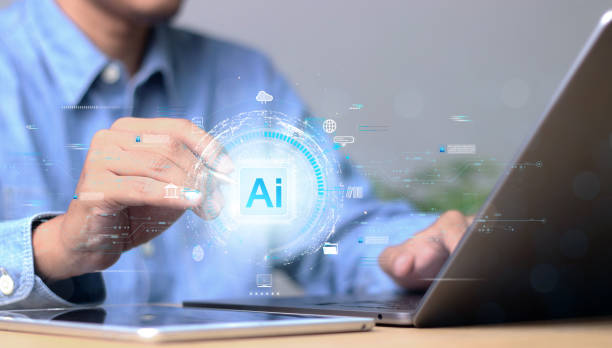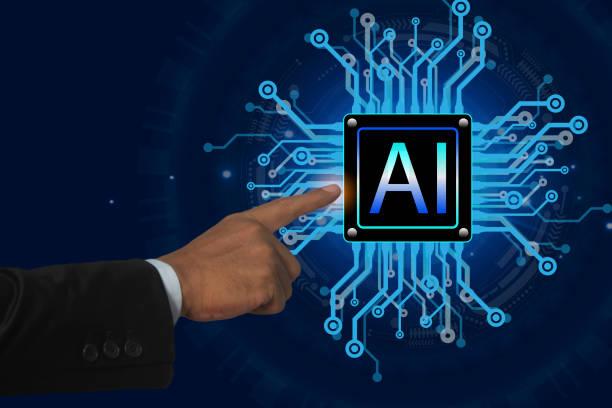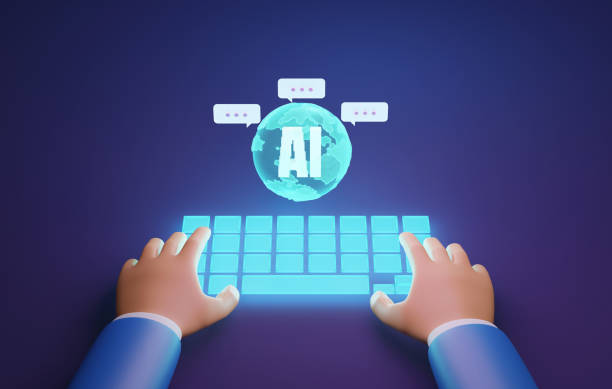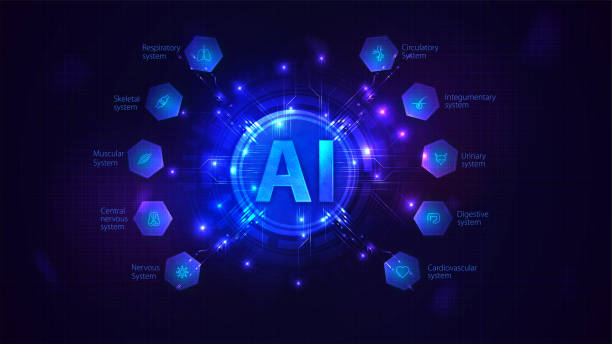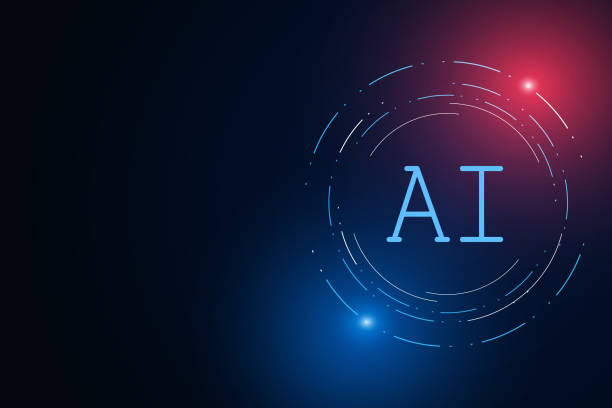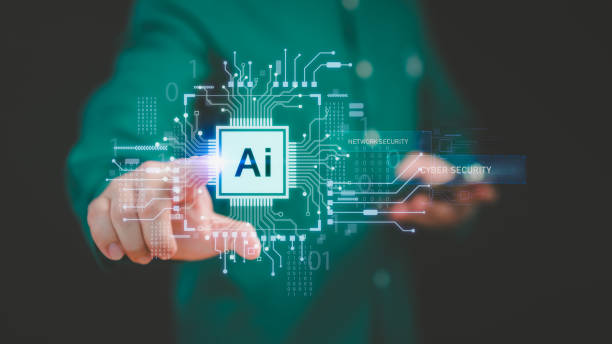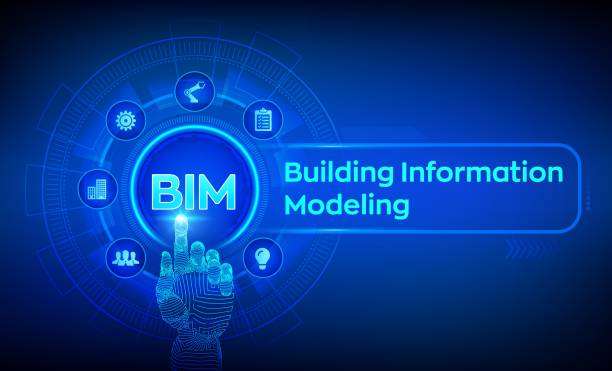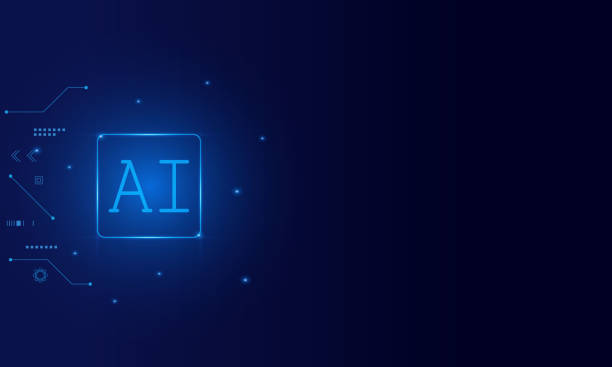Artificial Intelligence and the Transformation of the Job Market: A Comprehensive Outlook
Artificial Intelligence (AI) is rapidly reshaping various industries and profoundly impacting the global job market.
Understanding the different dimensions of this transformation is essential for individuals, businesses, and policymakers to adapt to the future of AI careers and benefit from its advantages.
This chapter provides an overview of AI’s role in the job market transformation, the opportunities and challenges arising from it, and the importance of preparing for these changes.
To better understand this topic, it’s necessary to first define AI and its capabilities accurately.
Artificial intelligence refers to a branch of computer science that aims to build machines capable of performing tasks that typically require human intelligence, such as learning, problem-solving, decision-making, and understanding natural language.
AI can be broadly categorized into two types: Narrow AI, which is designed to perform specific tasks, and General AI, which is capable of performing any task a human can.
Although General AI is still in its early stages of development, Narrow AI is currently being used in many industries and has significant impacts on the future of AI careers.
The effects of AI on the job market can be both positive and negative.
On the one hand, AI can create new job opportunities by automating repetitive tasks and increasing productivity.
On the other hand, AI can replace some traditional jobs and lead to unemployment.
For example, jobs requiring repetitive and routine skills, such as telephone operators and production line workers, are more at risk of being replaced by AI.
In contrast, jobs requiring creative skills, critical thinking, and human interactions, such as marketing specialists, human resources managers, and information technology professionals, are less at risk of replacement and may even see new job opportunities emerge with the advent of AI.
Therefore, to succeed in the future of AI careers, individuals must update their skills and learn new skills compatible with AI.
Businesses must also adjust their strategies to best utilize AI and prepare their workforce to collaborate with AI.
Ultimately, governments and policymakers must adopt policies that support a fair and sustainable transition to an AI-driven economy and ensure that everyone benefits from this technology.
In subsequent chapters, we will delve deeper into the opportunities and challenges arising from AI in the job market, the skills required for success in the future of AI careers, and business strategies for adapting to these changes.
Tired of losing business opportunities due to lacking a professional corporate website? Don’t worry anymore! With Rasaweb’s corporate website design services:
✅ Your brand’s credibility and professionalism will increase.
✅ You will attract more customers and sales leads.
⚡ Get a free consultation now to start!
New Job Opportunities Arising from Artificial Intelligence
Artificial intelligence not only replaces some jobs but also creates new job opportunities.
These opportunities are often in fields requiring specialized skills in AI, as well as complementary skills such as creativity, critical thinking, and problem-solving.
In this chapter, we will examine some of the most important new job opportunities arising from the future of AI careers.
Click here to preview your posts with PRO themes ››
AI Engineers and Data Scientists These individuals are responsible for designing, developing, and implementing AI systems.
They must have deep knowledge of machine learning algorithms, neural networks, and other AI techniques.
Additionally, they must be able to collect, analyze data, and use it to improve the performance of AI systems.
Robotics Developers With the expanding use of robots in various industries, the demand for developers who can design, program, and maintain robots is increasing.
These individuals must have sufficient knowledge of mechanics, electronics, and computer science.
Automation Specialists These individuals are responsible for automating business processes using AI and other automation technologies.
They must have sufficient knowledge of business processes, automation technologies, and project management.
AI Analysts These individuals are responsible for analyzing data generated by AI systems and providing analytical reports to managers.
They must have sufficient knowledge of statistics, data analysis, and report writing.
AI Ethics Specialists With increasing concerns about the ethical implications of AI, the need for specialists who can research ethical issues related to AI and provide solutions to these problems is growing.
They must have sufficient knowledge of philosophy, ethics, and law.
In addition to these specialized professions, the future of AI careers also creates new job opportunities in fields such as marketing, sales, customer services, and education.
For example, marketers can use AI to personalize marketing messages and improve conversion rates.
Salespeople can use AI to identify sales leads and improve closing rates.
Customer service specialists can use AI to answer customer questions and resolve their issues.
And teachers can use AI to provide personalized education to students.
Essential Skills for Success in the Age of Artificial Intelligence
To succeed in the future of AI careers, possessing specific skills is essential.
These skills include technical skills, soft skills, and lifelong learning-related skills.
In this chapter, we will examine some of the most important essential skills for success in the age of AI.
Click here to preview your posts with PRO themes ››
Technical Skills Possessing knowledge and technical skills related to AI, such as machine learning, neural networks, natural language processing, and data science, is essential for many jobs in the future of AI careers.
Individuals must be able to understand AI algorithms, implement them, and use them to solve various problems.
Soft Skills In addition to technical skills, possessing soft skills such as creativity, critical thinking, problem-solving, communication, and teamwork is also essential for success in the age of AI.
These skills help individuals adapt to rapid changes in the work environment, solve complex problems, and collaborate effectively with others.
Lifelong Learning Given the high speed of technological advancement, lifelong learning is essential for success in the future of AI careers.
Individuals must always be learning new skills and keeping their knowledge up-to-date.
They can update their knowledge and skills by participating in online and in-person training courses, studying articles and books, and attending conferences and seminars.
In addition to these skills, having industry-specific skills is also essential for success in the age of AI.
For example, a marketer who wants to use AI in their work must have sufficient knowledge of marketing as well as technical knowledge of AI.
To develop these skills, individuals can enhance their knowledge and skills by participating in online and in-person training courses, studying articles and books, taking part in practical projects, and collaborating with AI specialists.
| Skill | Description |
|---|---|
| Machine Learning | Familiarity with machine learning algorithms and their applications |
| Neural Networks | Familiarity with the structure and function of neural networks |
| Natural Language Processing | Familiarity with natural language processing techniques for understanding and generating text |
| Data Science | Ability to collect and analyze data |
Challenges Facing the Workforce in the Age of Artificial Intelligence
Alongside the countless opportunities that AI offers, it also creates challenges for the workforce.
These challenges include job displacement, the need for new skills, and ethical concerns.
In this chapter, we will examine some of the most important challenges facing the workforce in the future of AI careers.
Job Displacement One of the biggest concerns about AI is the replacement of jobs by machines.
Although AI also creates new job opportunities, some traditional jobs, especially those requiring repetitive and routine skills, are more at risk of displacement.
For example, jobs such as telephone operators, production line workers, and drivers may be replaced by AI and robots.
Need for New Skills To succeed in the future of AI careers, individuals must learn new skills compatible with AI.
These skills include technical skills, soft skills, and lifelong learning-related skills.
Individuals must be able to understand AI algorithms, implement them, and use them to solve various problems.
Additionally, they must also develop soft skills such as creativity, critical thinking, and problem-solving.
Ethical Concerns With the increasing use of AI, ethical concerns also rise.
These concerns include issues such as discrimination, privacy, and accountability.
For example, AI algorithms may inadvertently be discriminatory and lead to unfair decisions.
Also, AI can be used to collect and analyze individuals’ personal information, which can lead to privacy breaches.
To address these challenges, individuals, businesses, and governments must collaborate.
Individuals must update their skills and learn new skills compatible with AI.
Businesses must adjust their strategies to best utilize AI and prepare their workforce to collaborate with AI.
And governments must adopt policies that support a fair and sustainable transition to an AI-driven economy and ensure that everyone benefits from this technology.
Are you dissatisfied with the low conversion rate of visitors to customers on your e-commerce site?
Solve this problem forever with professional e-commerce website design by Rasaweb!
✅ Increase visitor-to-customer conversion rates
✅ Create an excellent user experience and build customer trust
⚡ Get a free consultation
The Role of Education in Preparing the Next Generation for the Age of Artificial Intelligence
Education plays a vital role in preparing the next generation for the future of AI careers.
Educational systems must be designed to equip students with the necessary skills for success in the age of AI.
In this chapter, we will examine some of the most important roles of education in preparing the next generation for the age of AI.
Teaching Technical Skills Educational systems must familiarize students with technical skills related to AI, such as machine learning, neural networks, natural language processing, and data science.
They must be able to understand AI algorithms, implement them, and use them to solve various problems.
Developing Soft Skills In addition to technical skills, educational systems must also develop soft skills such as creativity, critical thinking, problem-solving, communication, and teamwork in students.
These skills help them adapt to rapid changes in the work environment, solve complex problems, and collaborate effectively with others.
Promoting Lifelong Learning Educational systems must promote lifelong learning among students.
They must teach them how to learn new skills and keep their knowledge up-to-date.
They can update their knowledge and skills by participating in online and in-person training courses, studying articles and books, and attending conferences and seminars.
Integrating AI into Education Educational systems must integrate AI into learning processes.
AI can be used to personalize education, provide feedback to students, and automate administrative tasks.
To achieve these goals, educational systems must collaborate with businesses and AI specialists.
They must utilize their experiences and knowledge to design appropriate educational programs.
Additionally, they must prepare teachers and professors to teach AI skills.
Business Strategies for Adapting to Changes Caused by Artificial Intelligence
For success in the future of AI careers, businesses must adjust their strategies to best utilize this technology.
These strategies include investing in AI, training the workforce, and organizational restructuring.
In this chapter, we will examine some of the most important business strategies for adapting to changes caused by artificial intelligence.
Investing in AI Businesses must invest in AI technologies.
This investment can include purchasing AI software and hardware, hiring AI specialists, and collaborating with AI companies.
Workforce Training Businesses must prepare their workforce to collaborate with AI.
This training can include providing AI-related courses, offering practical learning opportunities, and fostering a learning culture within the organization.
Organizational Restructuring Businesses must restructure their organizations to best utilize AI.
This change can include creating new teams for developing and implementing AI systems, modifying business processes, and fostering a culture of innovation within the organization.
Focus on Innovation Businesses must focus on innovation.
AI can help businesses develop new products and services, improve their processes, and better understand their customers.
Attention to AI Ethics Businesses must pay attention to ethical issues related to AI.
They must ensure that their AI systems are fair, transparent, and accountable.
To implement these strategies, businesses must collaborate.
By sharing their experiences and knowledge, they can help each other best utilize AI.
Government Policies to Support a Fair Transition to an AI-Based Economy
Governments play a crucial role in supporting a fair and sustainable transition to an AI-based economy.
Through adopting appropriate policies, they can ensure that everyone benefits from AI and no one is left behind by this technology.
In this chapter, we will examine some of the most important government policies to support a fair transition to an AI-based economy.
Investing in Education Governments must invest in education to prepare the next generation for the future of AI careers.
This investment can include providing AI-related training courses, offering practical learning opportunities, and fostering a learning culture in society.
Supporting Innovation Governments must support innovation in the field of AI.
This support can include offering tax incentives, providing facilities for AI startups, and establishing AI research centers.
Regulating AI Governments must develop regulations to govern the use of AI.
These regulations must ensure that AI is used fairly, transparently, and responsibly.
Supporting Workers Governments must support workers affected by AI.
This support can include providing retraining, offering financial assistance, and creating new job opportunities.
Creating Social Networks Governments must establish social networks for exchanging information and experiences in the field of AI.
These networks can help individuals, businesses, and governments best utilize AI.
To implement these policies, governments must collaborate.
By sharing their experiences and knowledge, they can help each other best utilize AI.
Case Studies of Success in Adapting to Artificial Intelligence
To better understand how to adapt to the future of AI careers, examining case studies of companies and organizations that have successfully utilized AI can be very helpful.
In this chapter, we will review several case studies of success in adapting to artificial intelligence.
Netflix Netflix uses AI to recommend movies and TV shows to its users.
This recommendation system has helped Netflix increase its customer retention rate and boost its profits.
Amazon Amazon uses AI for managing its supply chain, providing customer services, and developing new products.
These systems have helped Amazon increase its efficiency, reduce its costs, and keep its customers satisfied.
Google Google uses AI for searching information, translating languages, and developing new products.
These systems have helped Google be a market leader in many fields.
General Electric General Electric uses AI for predicting industrial equipment failures, improving production processes, and developing new products.
These systems have helped General Electric reduce its costs, increase its efficiency, and boost its profits.
Mayo Clinic Hospital Mayo Clinic Hospital uses AI for diagnosing diseases, providing personalized treatments, and improving patient care.
These systems have helped Mayo Clinic Hospital increase the quality of its patient care and reduce its costs.
These case studies demonstrate that AI can be used to improve efficiency, reduce costs, increase profits, and enhance the quality of products and services.
To succeed in adapting to the future of AI careers, companies and organizations must develop appropriate strategies, invest in AI technologies, train their workforce, and restructure their organizations.
Does your current e-commerce website design cause loss of customers and sales?
Rasaweb, with its modern and user-friendly e-commerce website designs, is your solution!
✅ Significant increase in conversion rates and sales
✅ Strong branding and building customer trust
⚡ Get a free e-commerce website design consultation from Rasaweb!
Forecasting the Future of Artificial Intelligence and its Impact on Jobs
Accurately predicting the future of AI careers is challenging, but by examining current trends and advancements, an approximate picture of the future can be drawn.
In this chapter, we will explore some predictions about the future of AI careers and its impact on jobs.
Increased Automation Automation is expected to increase in the coming years, with many repetitive and routine jobs being replaced by machines and robots.
This could lead to unemployment in some industries.
Creation of New Jobs At the same time, AI is expected to create new job opportunities.
These opportunities are often in fields requiring specialized skills in AI, as well as complementary skills such as creativity, critical thinking, and problem-solving.
Changing Nature of Jobs Many existing jobs will also be affected by AI.
Workers will need to learn new skills to be able to work alongside AI and use this technology to improve their work.
Increased Importance of Soft Skills Soft skills such as creativity, critical thinking, problem-solving, communication, and teamwork are expected to gain more importance in the future of AI careers.
These skills help individuals adapt to rapid changes in the work environment, solve complex problems, and collaborate effectively with others.
Increased Importance of Lifelong Learning Lifelong learning is expected to become more important in the future of AI careers.
Individuals must always be learning new skills and keeping their knowledge up-to-date.
Given these predictions, individuals must update their skills, learn new skills compatible with AI, and prepare for potential changes in the work environment.
Businesses must also adjust their strategies to best utilize AI and prepare their workforce to collaborate with AI.
Recommendations for Job Seekers in the Age of Artificial Intelligence
For job seekers in the future of AI careers, having an appropriate strategy and preparing for potential changes is crucial.
In this chapter, we offer several recommendations for job seekers in the age of artificial intelligence.
Researching Future Jobs Before starting your job search, research and identify jobs that will grow in the future of AI careers.
This will help you learn the skills required for these jobs and prepare for them.
Learning New Skills Learn new skills that are compatible with AI.
These skills can include technical skills, soft skills, and industry-specific skills.
Networking Connect with people active in the AI industry.
This will help you learn about new job opportunities and gain insights from others’ experiences.
Building a Strong Resume Create a strong and attractive resume that best showcases your skills and experiences.
In your resume, highlight your AI-related skills as well as your soft skills.
Preparing for Interviews Prepare for job interviews.
In interviews, answer questions honestly and professionally, and demonstrate that you are a motivated, eager, and ready-to-learn individual.
Flexibility Be prepared for potential changes in the work environment.
The future of AI careers is rapidly changing, and you must be able to adapt to these changes.
Positive Thinking Be positive and believe in your abilities.
With effort and perseverance, you can succeed in the future of AI careers.
Frequently Asked Questions
| Question | Answer |
|---|---|
| What impact will AI have on the future job market? | AI will automate repetitive jobs, but at the same time, it will create new and more complex jobs in areas such as developing, maintaining, and training AI systems. |
| Which jobs are most at risk of being replaced by AI? | Jobs involving repetitive, rule-based tasks with low need for creativity or emotional intelligence, such as certain manufacturing jobs, data entry, and simple customer service, are most at risk. |
| What skills are essential for success in future careers with AI? | Skills such as critical thinking, complex problem-solving, creativity, emotional intelligence, data literacy, the ability to work with AI, and lifelong learning are of high importance. |
| Will AI lead to widespread unemployment? | Some jobs will be eliminated, but history has shown that new technologies, instead of causing widespread unemployment, reshape the job market and create new jobs. The need for adaptation and retraining is crucial. |
| What new job opportunities emerge with the advent of AI? | Jobs such as Machine Learning Engineer, Data Scientist, AI Ethicist, Human-AI Interaction Designer, and Digital Transformation Consultant are among the new opportunities. |
| What is the role of education in preparing for future careers with AI? | Education must focus on developing soft skills, computational thinking, digital literacy, and the ability for continuous learning to prepare individuals for future changes. |
| How can I prepare myself for job market changes caused by AI? | You can prepare yourself by learning new skills related to AI and data, strengthening soft skills, developing critical and creative thinking, and embracing lifelong learning. |
| Will AI ethics become an important career field? | Yes, given increasing concerns about biases, privacy, and automated decision-making in AI, the role of AI ethics specialists will become crucial to ensure its responsible development. |
| What is the importance of human-AI collaboration in future careers? | Human-AI collaboration, rather than competition, will shape the future of the job market. AI can be a tool to increase productivity and allow humans to focus on more complex and creative tasks. |
| Which industries will be most affected by AI? | Almost all industries will be affected, but fields such as healthcare, finance, transportation, manufacturing, education, and customer service are pioneers in adopting and transforming through AI. |
And other services by Rasa Web Advertising Agency in the field of advertising:
Smart Custom Software: Revolutionize digital branding with the help of attractive UI/UX design.
Smart Content Strategy: A novel service to enhance campaign management through custom programming.
Smart SEO: A dedicated service for improving SEO rankings based on marketing automation.
Smart Advertising Campaign: Designed for businesses seeking digital branding through user experience customization.
Smart Website Development: A professional solution for increasing click-through rates with a focus on intelligent data analysis.
And over hundreds of other services in the areas of internet advertising, advertising consultation, and organizational solutions.
Internet Advertising | Advertising Strategy | Advertorials
Sources
Exploring the Future of AI CareersAnalytical AI Job OpportunitiesChallenges Facing AI JobsCareer Paths in Artificial Intelligence
? Rasaweb Afarin Digital Marketing Agency, specializing in enhancing your business by providing comprehensive SEO services, targeted advertising, and professional website design.
📍 Tehran, Mirdamad Street, next to the Central Bank, Kazeroon Southern Alley, Ramin Alley, No. 6

